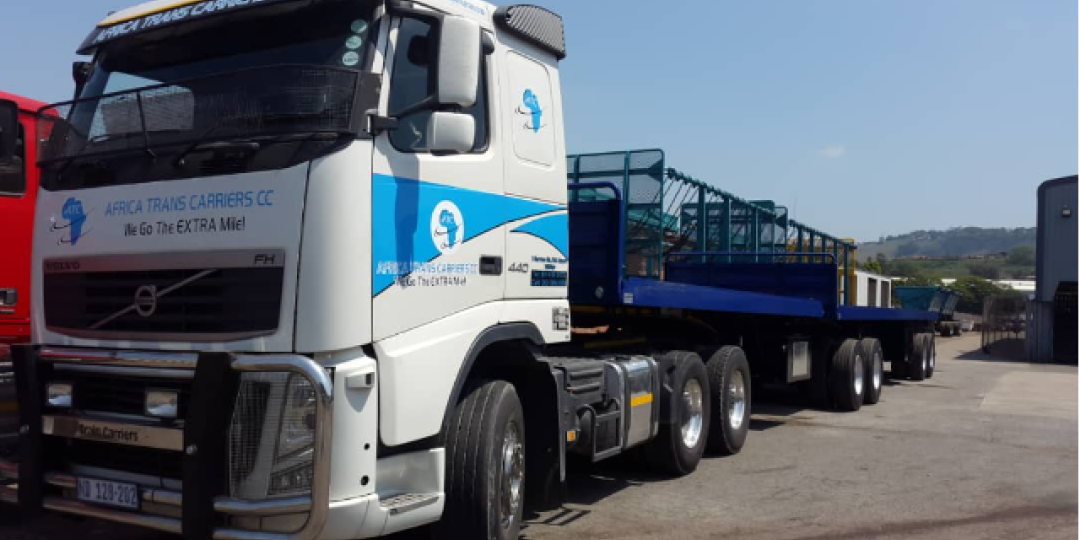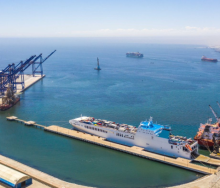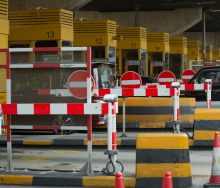The hold-ups that harbour carriers are facing at the Durban Container Terminal (DCT) because of Transnet’s inability to effectively facilitate trade have claimed another company – Africa Trans Carriers, which will close its doors at the end of August.
Junaid Abbas, who founded the operation 17 years ago with his partner, Aadil Osman, said the entire staff complement of 18 drivers, five employees in the workshop and another five in the office, would have to be retrenched.
“There’s no way we can carry on like this,” he said, commenting on the loathed truck booking system many harbour carriers say is unfairly used to award slots, if it works at all.
Earlier this week Michelle Phillips, Group CEO for the state-owned entity (SOE), said the reason for the current backlog of trucks – waiting for 16 hours on average – had been a fibre connectivity failure last weekend that had caused a major build-up in the system.
In addition, the logistics utility appears unable to cope with an increase in container volume, exacerbated by persistent straddle carrier breakdowns and consequent delays to effectively manage the box stack at DCT Pier 2.
But harbour carriers like Abbas maintain that whatever the SOE claims is currently causing the land-side backlog, in reality Transnet has been unable to adequately perform its duties to the benefit of all service providers responsible for the effective movement of cargo.
Abbas is not wrong, and certainly not alone in arguing that Transnet has for years been neglecting transporters responsible for moving containers in and out of the Port of Durban.
Back in 2018, well ahead of the Covid-19 pandemic, which put a stranglehold on Transnet’s port improvements, the late Kevin Martin, an erstwhile chair of the Durban Harbour Carriers’ Association, was often spitting mad over what he called “economic sabotage”.
That was before the current automated truck booking system was implemented, which another harbour carrier and current spokesperson for the industry, Ashley Govender, says was doomed from the start.
Speaking to Freight News earlier this week, Govender said Transnet had been warned that the current system would not work.
“But they went ahead and implemented it anyway.”
Abbas, who has 18 trucks and trailers in his fleet worth about R15 million, said it was simply not making financial sense any more.
In a social media message about the closure of Africa Trans Carriers, Abbas said: “It has not been an easy decision to make, but something we have been deliberating over the past year or so. The primary reason for this decision is that working with Durban’s port facilities has become a total nightmare, as I’m sure everyone here is fully aware.”
On Thursday, Abbas said: “I have one booking for the day and 17 trucks in the yard. I still have to pay all the drivers and my other staff, but my turnover for the day is R2 500. I have bills to pay but the business is simply not profitable any more.”
To make the business viable required a monthly turnover of R3.5m, he said.
“At the moment, we’re lucky if we turn R1.5m, if it’s a good month.”
For about the last three years, he said he and Osman had often not drawn salaries and had concentrated on simply keeping the business afloat, delivering a service to clients without concentrating too much on profit, in the hope that Transnet would turn things around.
He said the SOE had regularly committed to turn trucks around in 90 minutes or less, a key performance indicator that is apparently touted by Transnet in meetings with harbour carriers.
“But it’s never happened,” said Abbas.
“They promise one thing and do another. And when you take them on about it, there is no accountability. Part of the reason is business continuity. New people are appointed into positions of responsibility every six months or so, and they’re often unaware of the long-standing problems we have had.
“It really is unfortunate that it has come to this, but the reality on the ground is that we’ve been battling Transnet for too long. It’s not God’s will that we have to close our doors, it’s because of Transnet.”
The disillusioned transporter said he didn’t intend staying on in the road freight industry.
- Transnet has been approached for comment.













